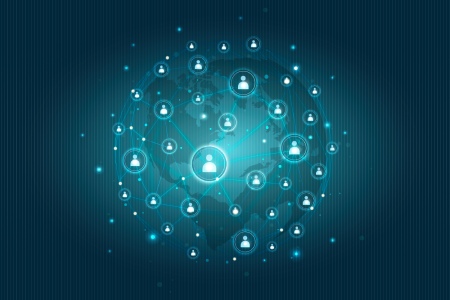-
Decentralized Autonomous Organizations (DAOs) are disruptive models with the potential to reshape the decentralized landscape. Unlike traditional organizations, DAOs eliminate centralized control and operate on a bottom-up decision-making approach. Businesses are increasingly adopting DAOs through smart contract development, deploying them across blockchain platforms tailored to their needs. For example, Solana blockchain development is often chosen by enterprises that prioritize scalability and speed. Partnering with a DAO development company helps ensure secure governance frameworks, efficient tokenomics, and smooth deployment. In this article, we'll explore practical DAO use cases that highlight their growing influence.
Understanding Decentralized Autonomous Organizations (DAOs)
DAO is an organization owned solely by its members or participants and has no involvement of a central authority. The idea is to promote the management of an entity. DAO participants take part in the voting on proposals. Smart contracts help in the execution of the outcomes. Moreover, there will be a record of everything on the blockchain. Individuals wishing to join this organization have to purchase DAO tokens. DAOs provide a transparent infrastructure where users can track or verify every transaction. Since every data, including operations, rulebook, and financial statements, is stored in a public blockchain network, DAOs ensure immutability and high-end safety. Furthermore, enterprises can get global accessibility by using DAO for high scalability. Check It Out: DAO Platform Development | An Exhaustive Explainer
DAO Use Cases
The high efficiency, lack of central authority, and transparency benefits of a DAO are the key factors that make it suitable for many use cases. We have enlisted some of the important DAO use cases below:
Crowdfunding
Crowdfunding is one of the areas where DAO can play a crucial role in community building. A project team can ask people for investment supplies whenever it requires investment. Individuals who will invest in the project will get DAO tokens, using which they can participate in decision-making and idea proposals. Letting investors in charge of making their own decision will give them a sense of noteworthiness. Moreover, the token price will increase with successful project funding. So, the investors will get a high ROI (return on investment). There have been instances where traditional crowdfunding platforms have restricted various types of marketing to raise money. Since a DAO has no third-party involvement, users will not find the same issue with DAO. Explore: Deciphering DAOs | Benefits, Elements, and a Pre-Built Solution
NFT
Multiple DAOs, including FingerprintsDAO and PleasrDAO, have accumulated various non-fungible token (NFT) collections by investing in them. These DAOs also use fractional NFTs to split ownership among the members. Furthermore, several NFT projects have established DAOs to empower their collectors to affect project growth and their fund usage. NounsDAO, SquiggleDAO, and MeebitsDAO are two examples of generative NFT DAO initiatives. Individuals must hold an NFT from the project's collection instead of buying a token to access the DAO. Also, Visit: A Quick Guide to Developing a DAO-enabled NFT Marketplace
Metaverse
Due to its decentralized nature, DAO can offer a fair, impartial, and transparent governance structure in the metaverse. Businesses are rapidly using DAOs for tracking ownership and transactions associated with digital assets, including NFTs, in-game items, and digital collectibles. DAOs can also offer virtual services like virtual currency exchange, in-game item rental, and prize payouts. Related Post: Exploring the Combination of DAO and the Metaverse
Social
Social DAOs aim to bring people, with similar interests, together in online communities centered on a token. Friends With Benefits and its $FWB token is an excellent example. Participants can fill out an application to get 75 FWB tokens to join the network. This membership includes access to a network of notable crypto developers, artists, and creatives. Additionally, members get access to special events. Members have the motivation to develop a valuable community by organizing around a token — exchange insights, hold events, and throw parties. For example, when more people saw the benefits of joining the FWB group, the token's value increased in lockstep, bringing the $FWB price from $10 to $75 and, as a result, the membership cost from roughly $750 to around $6,000. Suggested Post: Top Blockchain Use Cases to Explore in 2023
Governance
DAO is also proven to be a form of true decentralization in the dApp (decentralized application) governance area. DeFi platforms are very scalable, which necessitates the incorporation of reliability into the platform. When used with dApps, DAOs provide autonomy, transparency, and trustlessness to a decentralized platform. Decentralized apps in DAOs produce governance tokens, and each token holder has access and voting rights to impact future community decisions. MakerDAO is a renowned DeFi initiative administered by a DAO. The Maker network is a stablecoin that enables peer-to-peer crypto lending and borrowing. DAO controls Maker and enables owners of its governance token to amend the protocol's rules. It also delegates accountability for community decisions to the team. Maker is currently worth more than $6.5 billion. Also, Read: Exploring Ownerless Business Potential with Blockchain and DAOs
Conclusion
The rapidly increasing popularity of DAOs naturally attracts attention to the most prominent DAO use cases and best practices for utilizing them. With the potential of decentralization, Decentralized Autonomous Organizations have all the possibilities for replacing governance apps and investment groups. However, the idea of implementing DAOs on a wide scale is heavily dependent on how you deal with the issues. On the other hand, numerous DAO projects have succeeded in governance or investment pooling. If you are interested in DAO-based project development, Oodles can assist you. Our knowledgeable and skilled developers will be happy to assist you. Contact us today.

Our Offices
INDIA
Emaar Digital Greens, Sector 61,
Gurugram, Haryana
122011.
Welldone Tech Park,
Sector 48, Sohna road,
Gurugram, Haryana
122018.















